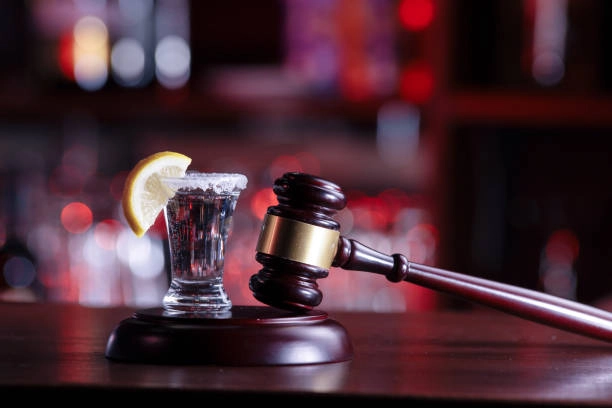5 Legal Defenses to Beat a DUI Charge in Dallas

DUI Charges in Dallas: Legal Defenses and Key Strategies
Driving Under the Influence (DUI) charges in Dallas are serious offenses that can lead to severe consequences, including hefty fines, license suspension, and even jail time. Dallas law enforcement is particularly strict when it comes to impaired driving, making it essential for individuals to know their rights and the legal defenses available to them. If you’re facing a DUI charge, being aware of the 5 legal defenses to beat a DUI charge in Dallas can significantly impact the outcome of your case.Why do Legal Defenses Matter in DUI Cases?
A DUI charge can have long-lasting effects on your personal and professional life. A strong legal defense can mean the difference between a conviction and a dismissal. Here’s why legal defenses are critical:- Challenging Evidence: Legal defenses can question the validity of evidence, such as breathalyzer results or the legality of the traffic stop.
- Reducing Penalties: A successful defense may lead to reduced charges or alternative sentencing options like probation or alcohol education programs.
- Protecting Your Rights: An experienced attorney ensures your rights are upheld throughout the legal process.

Ready to connect with top legal professionals? Get immediate support— Call us at 877-550-8911.
5 Legal Defenses to Beat a DUI Charge in Dallas
If you’re facing a DUI charge in Dallas, a strong defense can make a significant difference. Here are five effective legal defenses that may help you challenge the case against you:1. Unlawful Traffic Stop
Law enforcement must have a valid reason, known as probable cause, to stop your vehicle. If the officer did not observe a traffic violation or lacked a reasonable basis for the stop, it may be deemed illegal. Any evidence gathered during an unlawful stop, such as breathalyzer results, could be thrown out in court.2. Inaccurate Breathalyzer Results
Breathalyzer devices, commonly used to measure blood alcohol content (BAC), are not always reliable. Errors in calibration, maintenance, or administration can lead to inaccurate readings. Challenging the validity of these results can weaken the prosecution’s case and cast doubt on the accuracy of your BAC level.3. Medical Conditions Mimicking Intoxication
Certain medical conditions can produce symptoms similar to alcohol impairment. For instance, diabetics with high blood sugar levels may produce acetone, which a breathalyzer may falsely detect as alcohol. Additionally, acid reflux or other digestive disorders can cause mouth alcohol that affects test results. Presenting medical evidence can introduce reasonable doubt about your impairment.4. Insufficient Evidence
To convict you of a DUI, the prosecution must prove your guilt beyond a reasonable doubt. If there is insufficient evidence—such as a lack of video footage, eyewitness testimony, or concrete proof of impairment—your attorney can argue that the case should be dismissed.5. Rising Blood Alcohol Level
Your BAC can rise over time after consuming alcohol. This defense suggests that while your BAC may have been within legal limits while driving, it increased by the time of testing. Evidence such as witness statements or receipts documenting your drinking timeline can support this argument and challenge the accuracy of the BAC at the time of driving. By utilizing these defenses, an experienced DUI attorney can help protect your rights and potentially get your charges reduced or dismissed.Challenging the Traffic Stop
A critical aspect of DUI defense is questioning the legality of the traffic stop. Law enforcement must have reasonable suspicion to pull over a vehicle. Common reasons include erratic driving or visible vehicle issues. If these conditions were absent, your attorney can argue that the stop was unlawful. To challenge the traffic stop effectively:- Review dashcam footage and police reports.
- Gather witness statements.
- Determine if the officer followed proper procedures.
Questioning Breathalyzer Accuracy
Breathalyzer tests are a cornerstone of DUI cases, but their accuracy can be contested. Factors affecting results include:- Calibration and Maintenance: Devices must be regularly calibrated to ensure accuracy.
- Operator Training: Improper administration can lead to errors.
- Medical Conditions: Conditions like acid reflux or diabetes can produce false positives.
Proving Lack of Impairment
Another effective defense is proving that you were not impaired at the time of arrest. This can be supported by:- Field Sobriety Test Performance: Adequate performance suggests lack of impairment.
- Witness Statements: Testimonies from passengers or bystanders can support your case.
- Medical Evidence: Conditions like fatigue or illness can explain poor test performance.

Why Hire a DUI Attorney in Dallas?
Facing a DUI charge can be overwhelming, but hiring an experienced attorney can make a significant difference. Here’s why legal representation is crucial:- Expertise in DUI Laws: Attorneys understand the complexities of DUI cases and can identify potential defenses.
- Evidence Analysis: They review arrest circumstances, evidence, and police procedures to build a strong case.
- Emotional Support: An attorney handles all legal communications, allowing you to focus on your personal life.
FAQs
1. What should I do if I’m pulled over for a DUI in Dallas? Remain calm, provide requested documents, and avoid self-incriminating statements. Contact an attorney as soon as possible. 2. Can I refuse a breathalyzer test in Dallas? Yes, but refusal can lead to immediate license suspension and other penalties. Consult an attorney before making this decision. 3. How long does a DUI case take in Dallas? The duration varies, but most cases are resolved within a few months to a year, depending on complexity. 4. Can a DUI charge be expunged in Dallas? In some cases, yes. An attorney can guide you through the expungement process. 5. What are the penalties for a first-time DUI in Dallas? Penalties may include fines, license suspension, probation, and mandatory alcohol education programs.Don’t wait to secure the legal representation you deserve. Visit Legal Case Review today for free quotes and tailored guidance, or call 877-550-8911 for immediate assistance.



